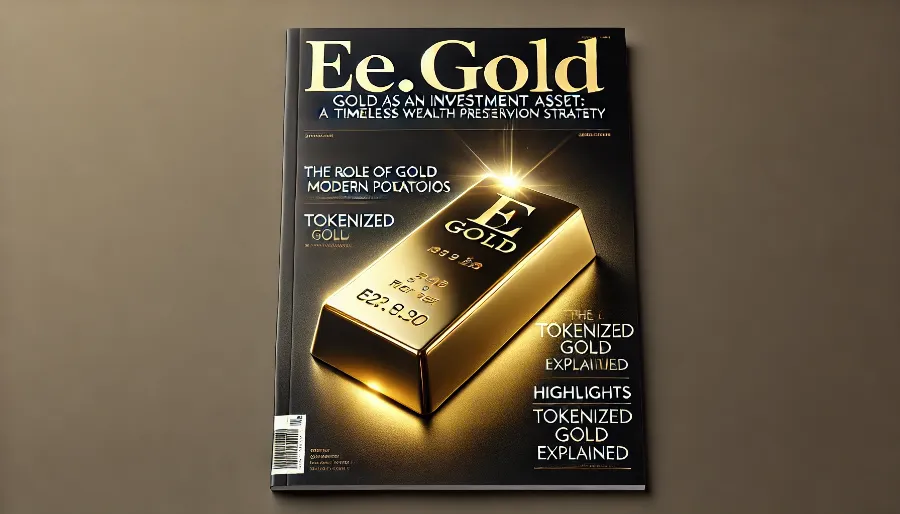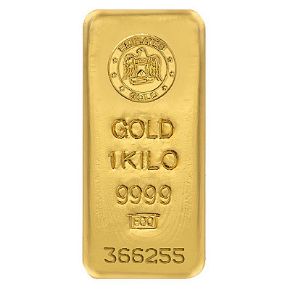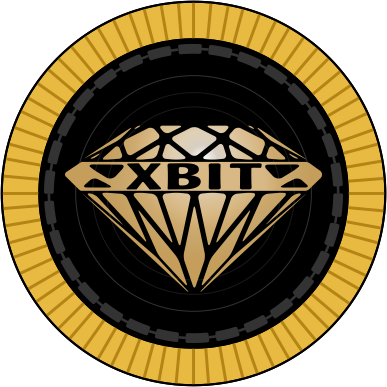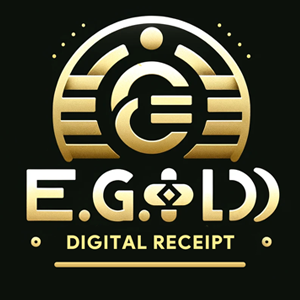
Table of Contents
- An Overview of Gold as a Reliable Investment Asset
- The Historical Role of Gold in Preserving Wealth
- How Gold Protects Against Inflation Over Time
- Gold’s Stability in Times of Economic Turbulence
- The Diversification Advantages of Adding Gold to Portfolios
- Different Ways to Invest in Gold
- Evaluating Gold’s Performance Over the Decades
- Comparing Gold to Other Investment Classes: A Comprehensive Analysis
- Tokenized Gold: The Future of Modern Gold Investments
- Gold’s Integration into Decentralized Finance (DeFi) Platforms
- Understanding the Risks of Investing in Gold
- The Importance of Gold in Central Bank Reserves Worldwide
- Liquidity and Accessibility of Gold Investments in 2025
- Environmental Impacts of Gold Mining: Challenges and Solutions
- Frequently Asked Questions About Investing in Gold
An Overview of Gold as a Reliable Investment Asset
Gold has been a cornerstone of wealth preservation and investment for centuries. Its intrinsic value, stability, and universal acceptance make it one of the most trusted assets globally. Investors rely on gold to hedge against inflation, diversify portfolios, and maintain wealth during times of uncertainty.
The Historical Role of Gold in Preserving Wealth
Gold has served as a store of value for thousands of years. From ancient civilizations using gold as currency to its role as a standard for international trade, gold’s historical reliability has cemented its status as a foundational investment asset.
How Gold Protects Against Inflation Over Time
Gold is renowned for its ability to maintain value during inflationary periods. Unlike fiat currencies, which lose purchasing power over time, gold retains its worth, making it an effective hedge against rising prices and currency devaluation.
Gold’s Stability in Times of Economic Turbulence
During economic downturns or geopolitical crises, investors turn to gold as a safe haven asset. Gold prices often rise when stock markets falter, offering stability in turbulent times.
The Diversification Advantages of Adding Gold to Portfolios
Gold’s low correlation with other asset classes, such as equities and bonds, makes it an essential component of diversified portfolios. By adding gold, investors can reduce overall portfolio risk and improve resilience during market volatility.
Different Ways to Invest in Gold
Gold can be invested in various forms, catering to diverse investor preferences. Physical gold includes coins, bars, and jewelry. Gold ETFs are exchange-traded funds offering exposure to gold prices. Gold futures are contracts to buy or sell gold at a predetermined price. Mining stocks allow investors to own shares of companies engaged in gold mining. Tokenized gold represents digital tokens backed by physical gold.
Evaluating Gold’s Performance Over the Decades
Gold has demonstrated consistent growth, with its value increasing steadily over decades. For example, gold prices rose from $300 per ounce in 2000 to over $1,900 per ounce in 2023, delivering average annual returns of around 8 percent.
Comparing Gold to Other Investment Classes: A Comprehensive Analysis
Gold offers unique advantages compared to other investments. Gold provides stability while stocks offer growth potential. Bonds yield income, but gold acts as a hedge during economic uncertainty. Gold is less volatile and widely accepted, while cryptocurrencies are high-risk, high-reward assets.
Tokenized Gold: The Future of Gold Investments
Tokenized gold represents physical gold on blockchain platforms, enabling fractional ownership and seamless trading. Platforms like PAX Gold and Tether Gold provide secure, transparent, and accessible gold investments.
Gold in Decentralized Finance (DeFi)
DeFi platforms are integrating gold-backed tokens, allowing users to lend, borrow, and stake assets. This innovation enhances gold’s utility in modern financial ecosystems.
Risks Associated with Gold Investments
Price volatility can occur based on market demand and macroeconomic factors. Physical gold requires secure storage and insurance. Gold does not generate income like dividends or interest.
The Role of Gold in Central Bank Reserves
Central banks hold significant gold reserves to ensure economic stability and hedge against currency fluctuations. This practice underscores gold’s enduring importance in global finance.
Liquidity and Accessibility of Gold Investments in 2025
Gold is a highly liquid asset, easily convertible into cash or other currencies. Modern platforms have further enhanced accessibility, allowing investors to trade gold 24/7 through digital tokens and ETFs.
Environmental Impacts of Gold Mining: Challenges and Solutions
Gold mining has a significant environmental impact, including deforestation, habitat destruction, and greenhouse gas emissions. Sustainable mining practices and recycling initiatives are being adopted to mitigate these effects.
Frequently Asked Questions About Investing in Gold
Why is gold considered a safe haven asset?
Gold’s intrinsic value, scarcity, and historical stability make it a trusted hedge during economic crises and market downturns, offering security to investors.How does gold perform during inflation?
Gold typically retains or increases its value during inflationary periods, protecting investors' purchasing power from currency devaluation.What is tokenized gold?
Tokenized gold represents physical gold stored in secure vaults, issued as digital tokens on a blockchain. It allows fractional ownership and seamless trading.Can gold generate income?
No, gold does not yield dividends or interest. However, its value appreciation provides capital gains over time.Is gold a good long-term investment?
Yes, gold has a proven track record of consistent growth and wealth preservation, making it an excellent long-term investment asset.What are the costs associated with investing in gold?
Investing in gold may involve storage and insurance costs for physical gold or management fees for gold ETFs and tokenized platforms.How does gold compare to cryptocurrencies as an investment?
Gold offers stability and a long history of reliability, while cryptocurrencies provide high-risk, high-reward growth opportunities driven by technological innovation.What role do central banks play in gold investments?
Central banks hold large gold reserves to ensure economic stability and hedge against currency fluctuations, reinforcing gold’s global importance.Is gold easy to buy and sell?
Yes, gold is highly liquid and easily convertible into cash or other currencies. Modern trading platforms have made gold investments even more accessible.What are the environmental concerns associated with gold?
Gold mining has environmental impacts, including deforestation and carbon emissions. Sustainable mining practices and recycling are being adopted to reduce these effects.What are the risks of investing in gold?
Gold investments carry some risks, such as price volatility influenced by macroeconomic factors, storage and insurance costs for physical gold, and the opportunity cost of not generating income like stocks or bonds.How does gold contribute to portfolio diversification?
Gold has a low correlation with other asset classes, such as stocks and bonds, making it an excellent tool for reducing overall portfolio risk and increasing resilience during market volatility.Can I trade gold 24/7?
While traditional gold markets operate during specific hours, digital platforms offering tokenized gold and gold ETFs allow for 24/7 trading, enhancing liquidity and accessibility.What is the difference between physical gold and gold ETFs?
Physical gold involves owning tangible assets like bars or coins, while gold ETFs provide exposure to gold prices without requiring physical ownership, making them more convenient for trading and storage.Is gold a better investment during economic uncertainty?
Yes, gold often performs well during economic downturns and geopolitical crises, acting as a safe haven and preserving wealth when other markets are volatile.Can gold be used in modern financial systems like DeFi?
Yes, tokenized gold is increasingly integrated into decentralized finance (DeFi) platforms, allowing users to lend, borrow, and stake assets for additional income streams.What are the tax implications of investing in gold?
Tax laws vary by country, but gold investments may be subject to capital gains tax. Consult a financial advisor or tax professional for guidance specific to your jurisdiction.How do I store physical gold safely?
Physical gold should be stored in secure locations such as home safes, bank deposit boxes, or professionally managed vaults, often accompanied by insurance for added protection.Are gold mining stocks a good alternative to physical gold?
Gold mining stocks provide exposure to the gold industry and may offer dividends. However, they are subject to additional risks, such as company performance and broader stock market volatility.What is the future of gold as an investment?
Gold’s role in global finance is expected to remain strong, with increasing adoption of tokenized gold and integration into blockchain ecosystems, ensuring it remains a valuable asset for both traditional and modern investors.
Gold’s timeless appeal and adaptability make it an essential asset for modern portfolios. Whether in its traditional form or tokenized on blockchain platforms, gold continues to offer stability, security, and growth potential for investors worldwide.
NOTE
This Content is the copyrighted content of EE.GOLD. All rights are reserved. You are welcome to share or use our content only by including direct links to our website. Any other form of reproduction, distribution, or use without proper attribution is strictly prohibited.
This Content is intended solely for educational purposes. The information provided does not constitute financial or investment advice.
Please note that Digital Storage Receipt, Secure Storage Solutions, and Physical Gold Sales are the only services offered by EE.GOLD.
We strictly adhere to government regulations and are firmly against all illegal financial or investment activities globally.
For further inquiries, feel free to contact us through our official channels.










.png)

